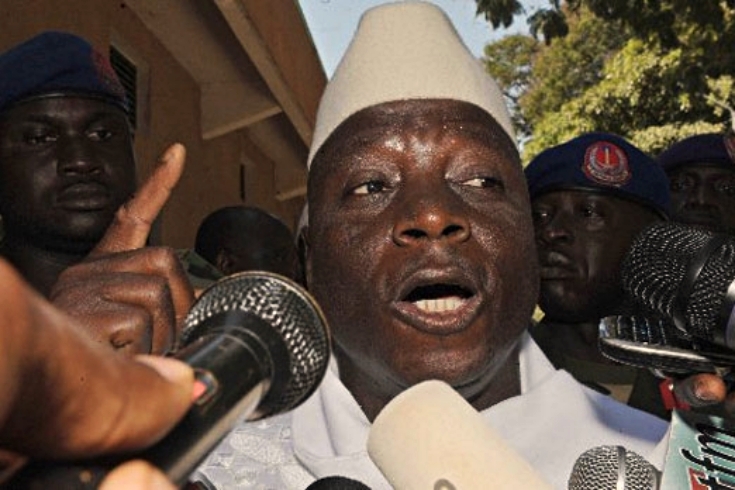Gambiaj.com – (BANJUL, The Gambia) – In a statement from exile in Equatorial Guinea, former Gambian President Yahya Jammeh has launched a barrage of allegations, accusing President Adama Barrow, United Democratic Party (UDP) leader Ousainou Darboe, and, to a lesser degree, Halifa Sallah, of collaborating with Senegal to steal The Gambia’s offshore oil reserves.
Jammeh, who ruled The Gambia from 1994 to 2017, claimed that these political figures and the broader 2016 coalition that ousted him have secretly ceded control of Gambian oil to Senegalese interests—a charge he has repeated without presenting any supporting evidence.
According to Jammeh, The Gambia’s oil reserves—comparable in potential, he claims, to those of Saudi Arabia—have been siphoned off through conspiracies stretching back to the Jawara era, with foreign oil companies complicit in the alleged plunder.
“Senegal has no oil,” Jammeh declared, suggesting that France would have already claimed Senegalese resources if they existed.
“What Abdoulaye Wade said is what they finally did,” he added, referencing an alleged joke by the former Senegalese president about stealing Gambian oil through a pipeline—an idea Jammeh insists has since materialized through secret deals after he lost power.
Jammeh specifically singled out Ousainou Darboe, accusing him of betraying the national interest while serving in government in 2018. “At that time, Darboe was in charge,” Jammeh said. “Adama Barrow was just a figurehead calling Darboe ‘my father.’”
He also accused Halifa Sallah, the leader of the People’s Democratic Organisation for Independence and Socialism (PDOIS), of having Senegalese roots and favoring Senegalese interests over Gambian sovereignty.
Ousmane Sonko, the Senegalese opposition figure who recently became Prime Minister, was also criticized for his “conspicuous silence” on the alleged oil theft. Jammeh suggested that Sonko’s silence was evidence of a broader conspiracy involving the highest levels of Senegalese leadership and Gambian collaborators.
Claims Without Evidence and Call for Anti-government Action
Throughout his lengthy address, Jammeh did not offer any documentary or verifiable proof to support his assertions. His tone was incendiary, calling on Gambians to share his message widely and demanding that the allegations “go viral.”
“This has to go viral because the white men asked that I accept a five percent share, and I said, Do you think that I am going to accept a five percent share?”, he said, painting himself as a lone defender of Gambian sovereignty against Western and regional exploitation.
Jammeh’s repeated insistence that he personally oversaw the oil sector—citing his direct role in negotiations, student training programs abroad, and refusal to grant licenses—was presented as a counterpoint to what he characterized as Barrow’s and Darboe’s betrayal of the nation’s natural wealth.
He also referenced personal confrontations with figures like former Petroleum Commissioner Kaba Jawara, portraying himself as uniquely knowledgeable and vigilant.
The timing and delivery of Jammeh’s allegations suggest they are aimed at stoking public anger and fostering distrust in Barrow’s government.
His rhetorical calls to action, telling Gambians to circulate his claims widely on Fridays (which he described as “my day”), underscore an apparent strategy to stoke anger and provoke political resentment in The Gambia.
These allegations emerge as The Gambia continues to navigate political and economic challenges under President Barrow’s leadership, including efforts to maintain shaky relations with Senegal while asserting control over the country’s natural resources.
No credible evidence has been offered by Jammeh to support his claims that the current administration and the UDP leader Ousainou Darboe have ceded Gambian oil to Senegal or that any such agreements exist.
In the absence of documentation, Jammeh’s statement appears to be part of a broader pattern of inflammatory accusations, reflective of his longstanding refusal to accept the legitimacy of the government that replaced him after he lost the 2016 election.
While Jammeh’s claims remain unproven, they could nonetheless feed already mounting conspiracy theories and deepen divisions within Gambian society.










